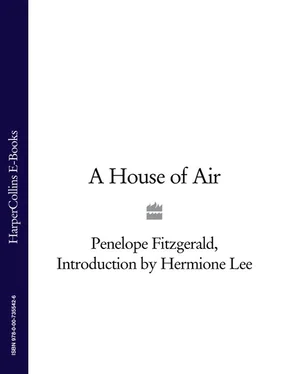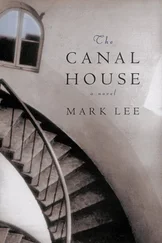Mr Knightley is pre-eminently the right man in the right place. Highbury, it is true, is less lively than it used to be—its ‘brilliant days’ are past, and the ballroom is used for a whist club—but the village lies in what seems unthreatened prosperity, surrounded by fields of wheat, oats, turnips, and beans and the parkland and strawberry beds of substantial houses. Jane Austen has been careful to make it a haven of only lightly disturbed peace. Since Mr Knightley himself is the local magistrate, there is nothing to fear. Emma, unlike the heroines of the other novels, makes no journeys, has never even seen the sea, but we come to realize that Donwell and Hartfield, ‘English verdure…English comfort, seen under a sun bright, without being oppressive,’ won’t, after all, be restrictive to her soaring temperament. Indeed, she accepts it herself as she stands looking out of the door of Ford’s, Highbury’s one large draper’s shop:
when her eyes fell only on the butcher with his tray, a tidy old woman travelling homewards from shop with her full basket, two curs quarrelling over a dirty bone, and a string of dawdling children round the baker’s little bow-window eyeing the gingerbread, she knew she had no reason to complain, and was amused enough; quite enough still to stand at the door. A mind lively and at ease, can do with seeing nothing, and can see nothing that does not answer.
This passage lies at the very heart of the book, an interlude, not of idleness, but of busy tranquillity.
In Northanger Abbey Jane Austen refers to the ‘rules of composition’ of ‘my fable.’ What were her rules of composition? It is sometimes said that in her later novels she shows contempt and even hatred for her wrongthinkers and wrongdoers. Certainly she was a writer in whom the comic spirit burned very strongly and who felt that some inhumanities are hard to forgive. But although she had the born satirist’s opportunity to punish, she surely used it very sparingly in Emma . Frank Churchill, in his negligent way, causes more pain than anyone else in the book. He misleads Emma, largely to safeguard himself, and teases the helpless Jane almost to breaking point. What is his reward? In Mr Knightley’s words, ‘His aunt is in the way.—His aunt dies.—He has only to speak.—His friends are eager to promote his happiness.—He has used every body ill—and they are all delighted to forgive him.—He is a fortunate man indeed!’ Miss Bates, on the other hand, the woman of ‘universal good-will,’ might, by any other writer, have been rewarded, but nothing of the kind occurs. ‘She is poor; she has sunk from the comforts she was born to; and if she live to old age, must probably sink more.’ Mr Elton, however, and his insufferable wife both flourish. Their satisfaction in themselves is not disturbed. They are the unreachables of classic comedy.
Beneath the moral structure of Jane Austen’s novels lie, not hidden but taken for granted, her religious beliefs. In Emma they are openly expressed only once. After Mr Knightley declares himself Emma finds that ‘a very short parley with her own heart produced the most solemn resolution of never quitting her father.—She even wept over the idea of it, as a sin of thought.’ ‘Sin of thought’ is a phrase familiar from the Evangelical examination of the conscience, and the book here is at its most serious. Emma’s love for her father has been, from the first, the way of showing the true deep worth of her character.
But Jane Austen gave her family (so her nephew says in his Memoir ) ‘many little particulars about the subsequent careers of her people.’ She told them that ‘Mr Woodhouse survived his daughter’s marriage, and kept her and Mr Knightley from settling at Donwell, about two years.’ The story ends, then, with a quite unexpected irony: Mr Woodhouse was right, after all, to fancy that his health was in a dangerous state. It is hard to imagine Highbury without him, as Jane Austen evidently could. But it is a corresponding relief to think of Emma—the warmhearted, headstrong, even dangerous Emma—safe and in ‘perfect happiness’ at Donwell.
Introduction to the Oxford University Press World
Classics edition of Emma , 1999
WILLIAM BLAKE The Unfading Vision
Blake , by Peter Ackroyd
Blake was one of those for whom, in William James’s definition, ‘religion exists not as a dull habit, but as an acute fever rather.’ He spoke with his visions on equal terms, sat down with them and answered them back. They came as welcome visitors: Jesus Christ, the angel Gabriel, Socrates, Michelangelo, his own younger brother Robert, dead at the age of nineteen. What seemed external reality he called a cloud interposed between human beings and the spiritual world, which would otherwise be too bright to bear. He wanted us all to know this. At one point in his biography of Blake, Peter Ackroyd speaks of him as ‘keeping his own counsel,’ but, as the book shows, Blake didn’t. It was his mission to recall us from materialism to the freedom and joy of the imagination, and it was humanity’s duty to listen to his prophecies.
The Blakes were a plain-living London tradesman’s family, pious, sober, dissenting and radical. William (1757—1827), the third child of James and Catherine Blake, was born on Broad Street, a little to the southeast of what is now Oxford Circus. A workhouse and a slaughterhouse were just around the corner, but so too, to the south, was Golden Square, where the gentry lived. William saw the face of God at the window when he was seven or eight years old, wrote poetry as a child, and was apprenticed at fourteen to James Basire, engraver to the Society of Antiquaries. A republican his whole life, he was involved (we don’t quite know how) in the riots of 1780, when the London crowds battled the militia and set fire to Newgate prison.
Perhaps on this account, perhaps because of an illness and a disappointment in love, William was sent across the river to recuperate at the house of a market gardener in Battersea. A year or so later he married the gardener’s daughter, Catherine Boucher. He started well enough, opening his own print shop and developing what he called ‘W. Blake’s original stereotype.’ This was a method of relief printing on copper, each impression being hand-tinted, so that no two were alike. In this way the Songs of Innocence , Songs of Experience , and the great series of prophetic books were offered (quite unsuccessfully) to the public. His work as a jobbing engraver began to run out, and he had to retreat to a cottage at Felpham, on the south coast. But although Felpham was a place of inspiration—it was the first time Blake had ever seen the sea—he was back three years later in the soot-and-dung-laden air of London that suited him and his wife so well.
‘In his later life,’ Mr Ackroyd writes, ‘he was known only as an engraver, a journeyman with wild notions and a propensity for writing unintelligible verse. He laboured for his bread, eccentric, dirty and obscure.’ It might be added that he was childless, and there is no way of calculating the pain that caused him. But Blake is also the poet of joy, and it could be argued that he was a fortunate man. Although he created the overwhelming tyrant figure Urizen, or old Nobodaddy, his own father seems to have been mild enough, never sending William to school because ‘he so hated a blow.’ Blake’s loyal wife, illiterate when they married, was, as he said, ‘an angel to me.’ (He had fallen in love with her because she pitied him, which seems to surprise Mr Ackroyd, but pity was the great eighteenth-century virtue that Blake most earnestly tells us to cherish.)
Although his earnings ran out, he was never without a patron, and although he had always kept radical company, he never got into serious trouble. When he was living in Felpham he was arrested after a row with a drunken soldier who accused him of speaking seditiously against the King—and so he very well may have done—but at the quarter sessions, where poor Catherine deposed that yes, she would be ready to fight for Bonaparte, Blake was miraculously acquitted. And at the end of his life he acquired a new circle of much younger admirers, artists who called themselves Ancients and understood, partly at least, Blake’s transcendent view of history and eternity. One of them, George Richmond, closed Blake’s eyes when he died in 1827 in his two-room lodgings, and then kissed them ‘to keep the vision in.’ ‘Yet there was really no need to do so,’ says Mr Ackroyd, feeling perhaps he has earned the right to a fine phrase. ‘That vision had not faded in his pilgrimage of seventy years, and it has not faded yet.’
Читать дальше












